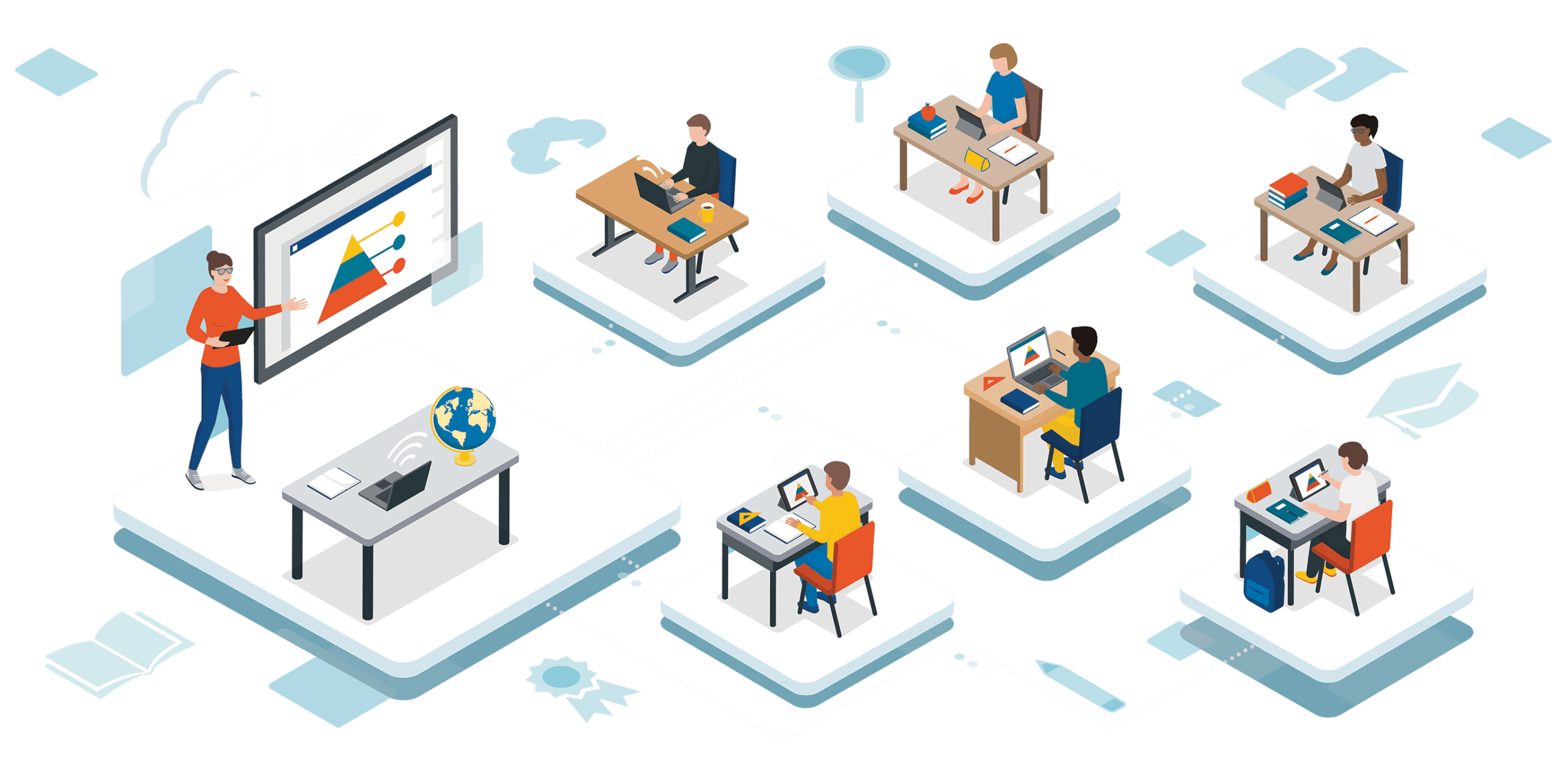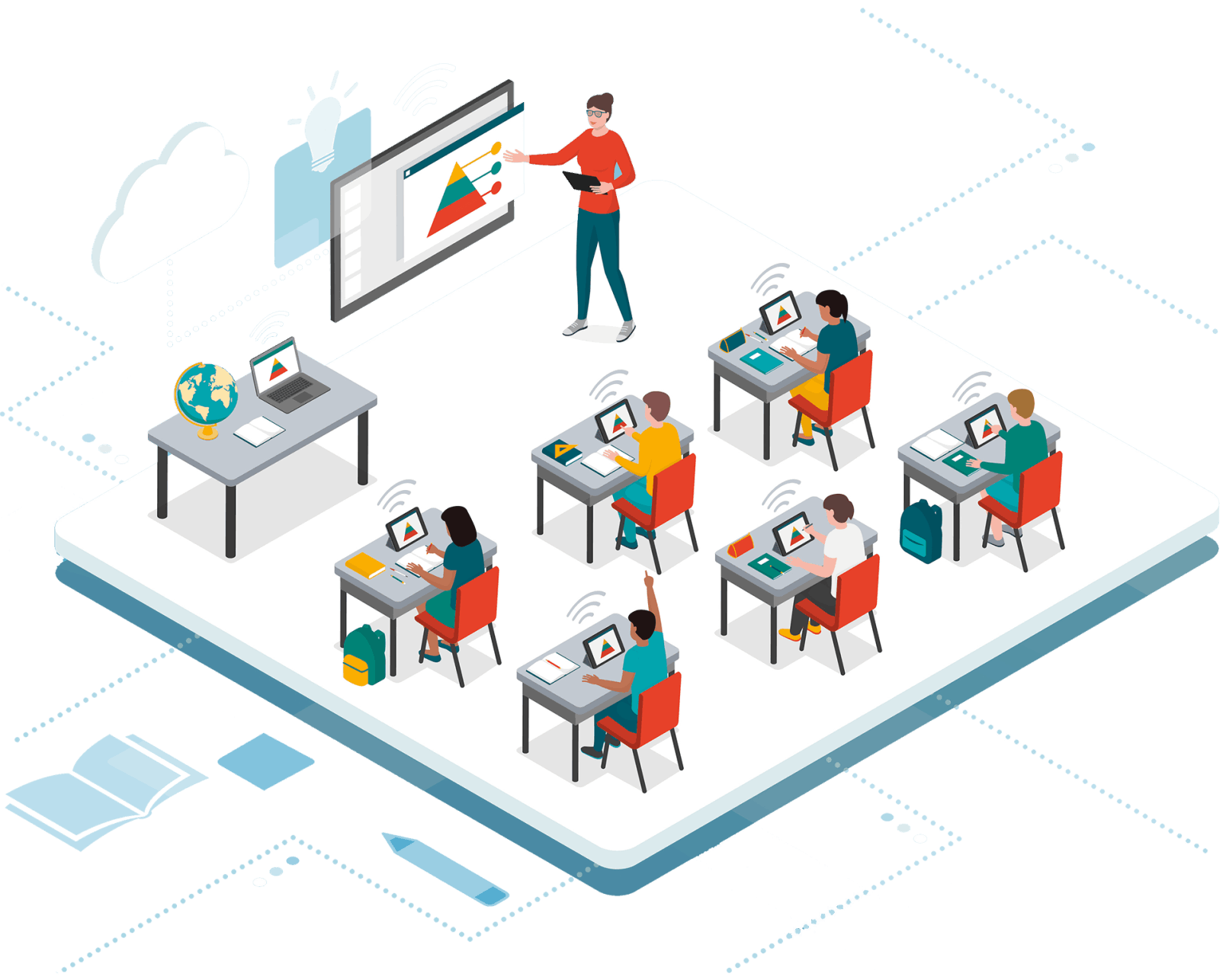CONTACT
Piotr Szczepański
Warsaw University of Technology
Phone: +48 22 234 1778
Mail: Piotr.Szczepanski@pw.edu.pl

During the ENHANCE workshop on Artificial Intelligence in Higher Education, renowned experts in AI in education from ENHANCE universities will deliver short speeches on using new technologies in teaching, providing valuable insights into the current state and prospects of AI tools from the perspective of their institutions.
Engaging in small-group discussions will bring together teacher and student perspectives and delve into critical AI-related topics in education.
The workshop will provide ample networking opportunities for participants to connect with like-minded professionals, form collaborations, and exchange ideas on the future of AI in education.
The workshop will consist of two parts:
– PART I – a series of short speeches, open to all members of ENHANCE community (students, doctoral candidates, staff) and others – LINK (pass: AIiHE)
– PART II – main workshop for a limited number of people – CLICK HERE TO REGISTER. The main workshop is divided into two parts, during which participants:
- work in groups (3-6 people)
- discuss issues related to the topic of the workshop using the prepared whiteboard

Topics for discussion:
– individualisation of learning paths using AI (learning analytics) – barriers and opportunities: student perspective, teacher perspective & institution perspective
– using digital technologies in teaching - from calculator through a computer to generative AI (for text and images)
– ethics, copyright, legal aspects vs AI tools
– AI tools for teachers/supporting teachers
– supporting teachers in using AI tools
Workshop objectives:
– to foster a deeper understanding of how AI tools, with a focus on ChatGPT, learning analytics, and assistants, can revolutionise education in technical universities - members of the ENHANCE Alliance
– to highlight the potential benefits, challenges, and ethical considerations associated with integrating AI tools into various aspects of teaching, learning, teacher, administration, and student support
– to allow participants to share their experiences, engage in thought-provoking discussions, and gain insights into cutting-edge research and innovative practices in this field

José V. Benlloch-Dualde earned a MSc. in Physics from the Universitat de València, and a Ph.D. in Computer Engineering from the Universitat Politècnica de València (UPV). He is currently Senior Lecturer with tenure at the School of Informatics in the UPV, where he teaches different courses related to Electronics and Educational Technology. His research interests relate to technology-enhanced learning and, more in particular, to learning analytics. He has leaded different innovation projects for over twenty years with a specific focus on educational technology. He earned a Hewlett- Packard Technology for Teaching Grant Initiative, Transforming Teaching and Learning through Technology in 2008. He was also one of the recipients of the Excellence in Teaching Award from UPV in 2009. He is currently the Teaching Deputy Head of the Computer Engineering Department at the UPV.

Karl de Fine Licht is an Associate Professor of Ethics and Technology at Chalmers University of Technology. His research interests are diverse and wide-ranging, spanning areas such as urban design, urban development, and questions surrounding a just energy transition. Despite this breadth, his focus is for now particularly concentrated on the role of AI in public decision-making and higher education.

Maria Ganzha, Associate Professor, Warsaw University of Technology. She received her MA and PhD degrees in mathematics at the Moscow State University, in Russia and a Doctor of Science degree in informatics from the Polish Academy of Sciences. Maria has published nearly 200 scientific articles, is a member of the editorial boards of 5 journals and Editor-in-Chief of a book series. She has been invited to the program committees of over 250 conferences. Her scientific interest is focused on broadly understanding artificial intelligence and distributed systems: machine learning (federated learning in particular), frugal AI, agent-based systems, semantic technology. She is Technical Coordinator of EU project ASSIST-IoT, and group leader in EU project aerOS. Moreover, she serves as a senior consultant in two NCBIR projects: 1) Empowered AI in Energy Logserver - an AI module for algorithmic discovery of knowledge accumulated in IT system events as a response to challenges in the field of Cybersecurity and 2) Development and verification of technology for managing and distributing tasks in a distributed server infrastructure, located near renewable energy sources, using software agents.

Kacper Gradoń, Ph.D., D.Sc. is an Associate Professor in Cybersecurity (Warsaw University of Technology), Honorary Senior Research Fellow at Department of Security and Crime Science (University College London) and Visiting Fulbright Professor at University of Colorado Boulder. He is also the World Health Organization Global Infodemic Manager. He is a double TED Speaker, expert in information warfare and human-centric dimensions of cybersecurity and frequent consultant of law enforcement agencies and intelligence institutions worldwide. He has spoken at over 200 conferences on all continents. Previously he was an Associate Professor and Director of the Centre for Forensic Sciences (University of Warsaw). He was also a civilian expert of the General Headquarters of the Polish National Police (where he was responsible for the creation of the criminal intelligence and analysis framework). He has published extensively on the issues of cybercrime, future crimes, Artificial Intelligence, hybrid warfare and criminal investigations.

Roman Z. Morawski (*1949) is Professor of Measurement Science at Warsaw University of Technology. His research contributions (more than 50 projects, ca. 250 publications and patents) are mainly concerned with measurement data processing in biomedical engineering. His academic interests include, moreover, the issues related to organisation of higher education, research methodology and research ethics; he has authored ca. 100 publications in this area, in particular – two books: Ethical Aspects of Research in Empirical Sciences (Warsaw University Press, 2011) and Technoscientific Research: Methodological and Ethical Aspects (Walter De Gruyter, 2019).
📥DOWNLOAD THE SCHEDULE
9:00 - 9:15
Introduction
Welcome, introduction, agenda by Andrzej Kraśniewski.
9:15 - 9:40
Lecture - by Karl de Fine Licht 📥 DOWNLOAD PDF
“Navigating AI in Academia: Directing Student Interaction with Artificial Intelligence” - Karl de Fine Licht will be presenting on the role of AI in academic settings. Specifically, he will explore the question of whether and how educators should guide students to incorporate AI into their coursework. Through outlining a variety of AI applications, he will offer examples of potential guidance for examiners and shed light on the pivotal role of educators in shaping the way students use AI.
9:40 - 10-:00
Lecture - by Maria Ganzha 📥 DOWNLOAD PDF
"Generative AI - opportunities and challenges" - Recent introduction of systems based on generative models changes our reality - for good and for bad. Almost every day new model, application, addon are introduced with a big fanfare, or creep into everyday tools (e.g. communicators and browsers). In the context of education, we have to confront the fact that the only way to "protect our students from the evil influences" would be to take away their cell phones (e.g. note that Bing Chat is now a part of Skype) and turn off the internet. Therefore, we must to learn how to use them, how our students should (and should not) use them, to avoid the situation when we will be used. However, are we ready to introduce the necessary changes?
10:00 - 10:20
Lecture - by José V. Benlloch-Dualde 📥 DOWNLOAD PDF
"Learning analytics or how to improve teaching learning processes using data" - Nowadays, integrating digital platforms and tools to enhance learning is quite common, mainly in higher education. Therefore, more and more data related to student activity can be collected. Learning Analytics develops data science methods to understand teaching-learning processes and make more informed decisions. This talk will present some examples of how these techniques have been applied at the Universitat Politècnica de València.
10:20 - 10:40
Lecture - by Roman Morawski 📥 DOWNLOAD PDF
"Ethical & educational implications of the development of AI-supported technologies".
10:40 - 11:00
Lecture - by Kacper Gradoń 📥 DOWNLOAD PDF
"The double-edged sword of technology. Is there a dark side to the AI applications?".
11:00 - 11:15
Q&A
11:15 - 11:45
Break
11:45 - 13:00
Workshop - part 1
"Individualisation of learning paths using AI (learning analytics) - barriers and opportunities: student perspective, teacher perspective & insitution perspective".
13:00 - 13:15
Break
13:15 - 14:30
Workshop - part 2
"Individualisation of learning paths using AI (learning analytics) - barriers and opportunities: student perspective, teacher perspective & insitution perspective".
14:30 - 15:00
Wrap-up
The following observations and guidelines can be formulated:
· The new AI tools will likely reshape the education model.
· AI creates a wide spectrum of opportunities for enhancing higher education, but there are also numerous barriers, threats and risks.
· Use of AI in education creates a number of difficult questions with no clear and convincing answer to some of them.
It is important that students and staff become AI-literate, i.e. they know and understand the opportunities, but also limitations, risks and ethical issues associated with the use of AI tools, related in particular to:
· the ownership and privacy of data,
· potential mistakes and bias,
· inaccuracy of information,
· potential plagiarism.
This is of key importance as in some countries, such as Sweden, a vast majority of students are familiar with AI tools, mostly with ChatGPT, and a significant fraction of them use ChatGPT regularly [Hans Malmström, Christian Stöhr & Amy Wanyu Ou, Chatbots and other AI for learning: A survey of use and views among university students in Sweden, Chalmers Studies in Communication and Learning in Higher Education 2023:1, LINK TO SURVEY].
· Students and staff should be encouraged to use new AI tools to exploit their potential in increasing the effectiveness of the educational processes.
· Teachers should give clear instructions to students on what use of AI tools is allowed in their courses.
Teachers should continually enhance their pedagogies and the methods for assessment of learning outcomes to accommodate the developments in AI, and generative AI in particular.
· AI (learning analytics tools) can effectively support the individualisation of learning paths and should be more frequently exploited.
· Formulating joint guidelines on use of AI in the ENHANCE Alliance universities could be considered.
The last recommendation is worth discussion as not only individual universities, but also university networks start to formulate guidelines on use of AI. The recent example is the document of the Russell Group in UK [New principles on use of AI in education, Russell Group, 4.07.2023, LINK].
Presentations from plenary session - click to go to agenda & download
Piotr Szczepański
Warsaw University of Technology
Phone: +48 22 234 1778
Mail: Piotr.Szczepanski@pw.edu.pl
Made with
Easy Website Builder